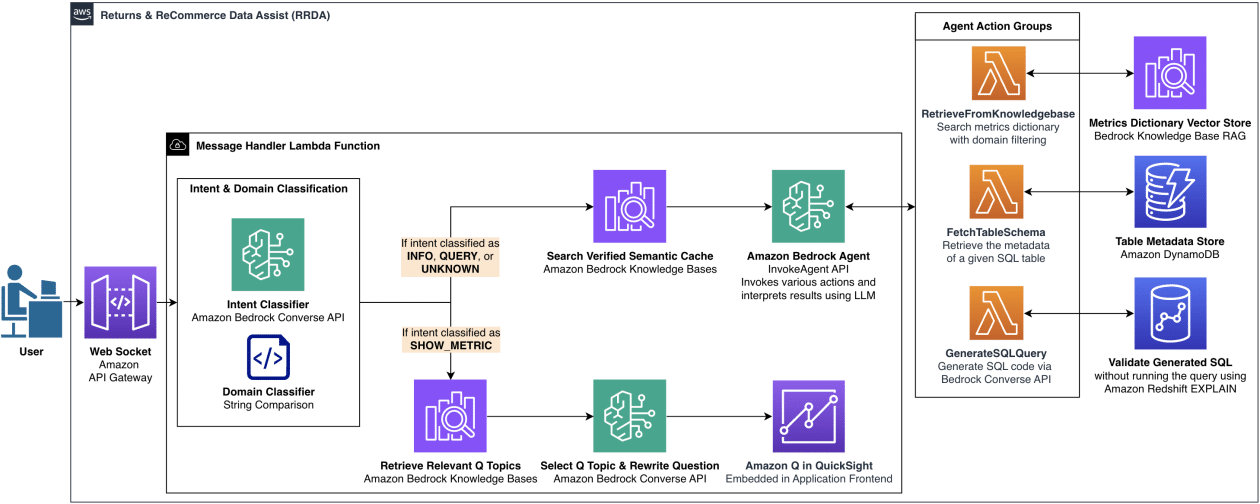Here’s the translation into American English:
—
A new advancement in data analysis transformation has materialized with the development of the Returns and ReCommerce Data Assistance (RRDA) at Amazon’s Returns and ReCommerce organization. This system, powered by generative artificial intelligence, promises to replace hours of data analysis with simple interactions through natural conversation. In many companies, the connection between business questions and actionable data remains a challenge. Business teams often find themselves caught in endless cycles, seeking definitions of metrics and the correct data sources to manually craft SQL queries.
With over 450,000 SQL queries executed annually in its data warehouses, Amazon faced a significant bottleneck within its business intelligence and analytics teams. Therefore, it was essential to implement a self-service solution capable of handling the inherent business complexity. The RRDA has empowered over 4,000 non-technical users to identify the correct metrics, construct validated SQL queries, and generate complex visualizations through a conversational approach.
Through a WebSocket connection and AWS Lambda, the RRDA allows users to obtain quick answers, achieving query resolution up to 90% faster, thus reducing wait time from hours to minutes. This system manages multiple information workflows, from SQL generation to visualization delivery, optimizing data access and utilization.
Additionally, the architecture of the RRDA employs an Amazon Bedrock agent, which organizes queries and responses, ensuring that solutions are accurate and relevant through a hybrid model that combines speed and power. By creating a metrics dictionary, the system provides clear definitions and SQL queries that are validated in real-time, reinforcing the system’s reliability.
In conclusion, the Returns and ReCommerce Data Assistance not only supports the streamlining of analytical processes but also democratizes access to information, allowing non-technical users to obtain quick and accurate answers, thereby improving data-driven decision-making within the organization.
Source: MiMub in Spanish
